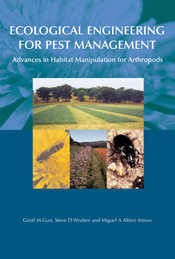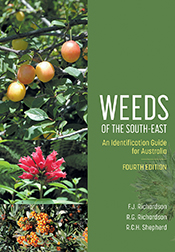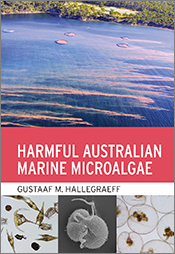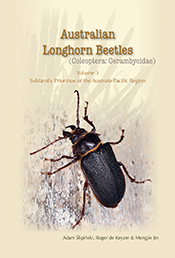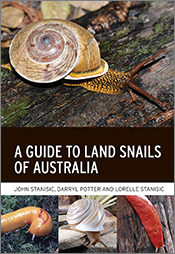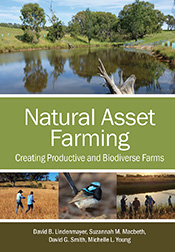Ecological Engineering for Pest Management
Advances in Habitat Manipulation for Arthropods
Edited by: Geoff M Gurr, Steve D Wratten, Miguel A AltieriDetails the latest techniques in manipulating farm habitats to enhance pest control in crops worldwide.
Ecological engineering is about manipulating farm habitats, making them less favourable for pests and more attractive to beneficial insects. Though they have received far less research attention and funding, ecological approaches may be safer and more sustainable than their controversial cousin, genetic engineering. This book brings together contributions from international workers leading the fast moving field of habitat manipulation, reviewing the field and paving the way towards the development and application of new pest management approaches. + Full description
Chapters explore the frontiers of ecological engineering methods including molecular approaches, high tech marking and remote sensing. They also review the theoretical aspects of this field and how ecological engineering may interact with genetic engineering. The technologies presented offer opportunities to reduce crop losses to insects while reducing the use of pesticides and providing potentially valuable habitat for wildlife conservation.
With contributions from the USA, UK, Germany, Switzerland, Australia, New Zealand, Kenya and Israel, this book provides comprehensive coverage of international progress towards sustainable pest management.
- Short descriptionNews
This title is no longer available in print, but can still be purchased as an eBook.
Reviews
"This book is a valuable addition to pest management and sustainable agriculture. It is well written and the editors are commended for producing this important work."
Peter G. Mason (Agriculture, Ecosystems and Environment v.112, 2006)
“The stimulating chapters provide timely strategies concerning pest control in crops worldwide. …[They] present valuable, up to date information on how ecological engineering approaches to pest management can be developed and applied, as well as pointing out technical and practical frontiers for future research.”
From the Foreword by Professor David Pimentel, Cornell University, Ithaca, USA
“The chapters are well designed to provide the best available information on ecological engineering today, and the book includes a detailed consideration of possible positive and negative interactions with genetically engineered crops. ... This book is, therefore, welcome and timely.”
Maurizio G Paoletti, University of Padua, Italy (Ecology and Society v.10 no.1, 2004)
“Harmonising agricultural practices and wider conservation of insects is a key issue for the future. This well produced hardback book demonstrates mush of the progress made, exemplifies clearly the wider considerations involved, and shows that many of the practices really ‘work’ in crop protection.”
TR New, La Trobe University, Victoria (Journal of Insect Conservation v.9 no.1 2005)
“The book is easy to read and is enhanced by thoughtful editing of the volume. For example, effective cross referencing between chapters helps to reinforce links and minimize repetition. … will undoubtedly contribute to ecological understanding and the improvement of pest management.”
Mary Finlay-Doney, School of Integrative Biology, University of Queensland (Austral Ecology v.30 no.5 Aug 2005)
"This book will raise awareness of the need to develop ecologically sound and sustainable methadology for pest management… essential reading for everyone involved in the development and implementation of insect control technologies in agriculture."
Plant Protection Quarterly Vol.21(4), 2006
Details
ePDF | August 2004ISBN: 9780643098411
Publisher: CSIRO Publishing
Available from eRetailers
ePUB | August 2004
ISBN: 9780643100077
Publisher: CSIRO Publishing
Available from eRetailers
Features
- discusses a wide array of habitat manipulations, including agroforestry, biological control, crop rotations, crop diversity, flower strips, natural enemy refuges, trap crops and other technologies.
- explores new methodological approaches such as tracking and marking of insects, molecular methods and remote sensing.
- makes extensive use of examples from current and recent research to demonstrate the utility of ecological engineering for pest management.
- includes a foreword by Professor David Pimentel, Cornell University
Contents
PrefaceContributors
Chapter 1 Ecological engineering, habitat manipulation and pest management
G.M. Gurr, S.L. Scarratt, S.D. Wratten, L. Berndt & N. Irvin
Chapter 2 Genetic engineering and ecological engineering: a clash of paradigms or scope for synergy?
M.A. Altieri, G.M. Gurr & S.D. Wratten
Chapter 3. The agroecological bases of ecological engineering for pest management
C.I. Nicholls & M.A. Altieri
Chapter 4 The landscape context of arthropod biological control
M.H. Schmidt, C. Thies & T. Tscharntke
Chapter 5 Use of behavioural and life-history studies to understand the effects of habitat manipulation
M.A. Jervis, J.C. Lee & G.E. Heimpel
Chapter 6 Molecular techniques and habitat manipulation approaches for parasitoid conservation in annual cropping systems
F.D. Menalled, J.M. Alvarez & D.A. Landis
Chapter 7 Marking and tracking techniques for insect predators and parasitoids in ecological engineering
B. Lavandero, S.D. Wratten, J. Hagler & J. Tylianakis
Chapter 8 Precision agriculture approaches in support of ecological engineering for pest management
M. Coll
Chapter 9 Effects of agroforestry systems on the ecology and management of insect pest populations
M.A. Altieri & C.I. Nicholls
Chapter 10 The ‘push–pull’ strategy for stemborer management: a case study in exploiting biodiversity and chemical ecology
Z.R. Khan & J.A. Pickett
Chapter 11 Use of sown wildflower strips to enhance natural enemies of agricultural pests
L. Pfiffner & E. Wyss
Chapter 12 Habitat manipulation for insect pest management in cotton cropping systems
R.K. Mensah & R.V. Sequeira
Chapter 13 Pest management and wildlife conservation: compatible goals for ecological engineering?
C. Kinross, S.D. Wratten & G.M. Gurr
Chapter 14 Ecological engineering for enhanced pest management: towards a rigorous science
G.M. Gurr, S.D. Wratten & M.A. Altieri
Index
Authors
Geoff Gurr has worked extensively in pest management in Britain and Australia. He now heads research at the University of Sydney’s Faculty of Rural Management and coordinates the postgraduate course in Sustainable Agriculture. His current research explores the utility of ecological knowledge for more effective and sustainable plant protection. He serves on the editorial boards of four journals and has published more than seventy refereed papers and book chapters as well as co-editing the book Biological Control: Measures of Success with Steve Wratten.Steve Wratten is Professor of Ecology at Lincoln University, New Zealand, and Visiting Professor at the University of Sydney. He has produced more than 300 refereed publications, including six books and more than 60 book chapters and reviews, and is on the editorial boards of eight international journals. His main current research interest is the enhancement of ‘ecosystem services’ on farmland, in particular the improvement of biological control of pests via the provision of floral resource subsidies for predators and parasitoids.
Miguel A Altieri has been an agroecology professor at the University of California Berkeley for over 20 years. He conducts teaching and research in California, Europe and Latin America aiming at the development of ecologically based pest management systems. His main approach involves breaking the monoculture nature of agroecosystems through encouragement of functional biodiversity. Miguel Altieri is author of more than 200 scientific papers and has also written 12 books including Agroecology: The Science of Sustainable Agriculture and Biodiversity and Pest Management in Agroecosystems.

